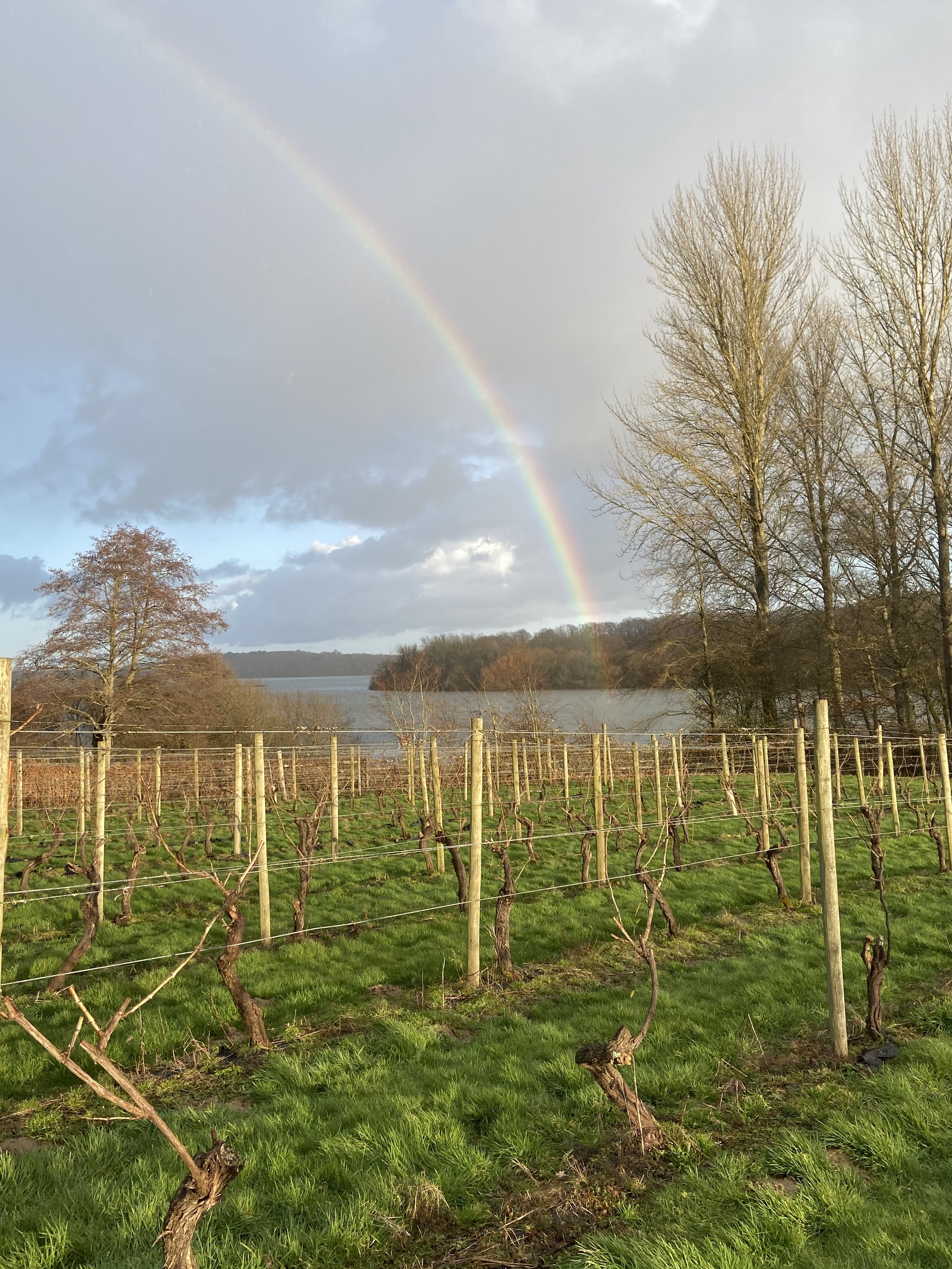Our Story
-
Bewl Water Vineyard in Sussex abuts the largest body of fresh water in South East England and its gentle southerly slopes of Wadhurst clay create a unique growing environment and a frost-free microclimate.
Located within the High Weald Area of Outstanding Natural Beauty, the landscape retains its medieval character of small irregular-shaped fields and scattered farmsteads, often grazed by sheep or Sussex cattle. Bewl Water Vineyard has a long history of both fruit and hop farming - its oast house's triple roundels still rotate in the warm winds.
The fertile clay soil has a slightly higher than average iron content with nearby Wadhurst having been at the centre of England's iron industry in the Middle Ages.
-
Bewl Water Vineyard produces small batch, hand crafted wines. Our Bacchus grapes are amongst the oldest in the UK having been planted in the 1970s. The colder climate in England means that these grapes retain a higher acidity, giving varietal wines of high quality, somewhat in a Sauvignon blanc-like style. Our Pinot Noir grapes planted in 2005 are Burgundy clones (115/3309, 375/504, 777/3309) which thrive in our Sussex clay soil. The undulating and gently south sloping terrain of our five acre vineyard combines good drainage with optimum exposure to the Sussex sun.
-
Our wines have won multiple WineGB Awards, the national competition for the English and Welsh wine industry. They have recently been included in the top 100 UK wines at this year’s Vineyard & Winery Show.
-
We believe sustainability is very important, both as a business and as individuals. We are proud to be members of WineGB’s Sustainable Wines of Great Britain Scheme.
We are responsible for protecting local wildlife, habitats and biodiversity. We take a conscious and considered approach in our management of pest and disease, minimising our use of chemicals and ensuring we prevent soil depletion.
As we are a small-batch vineyard and hand-pick our grapes, our environmental impact is lessened as we have a reduced reliance on machinery. However, we are continually striving to make our processes more sustainable.
Of course, consuming local English wine also has environmental benefits.





